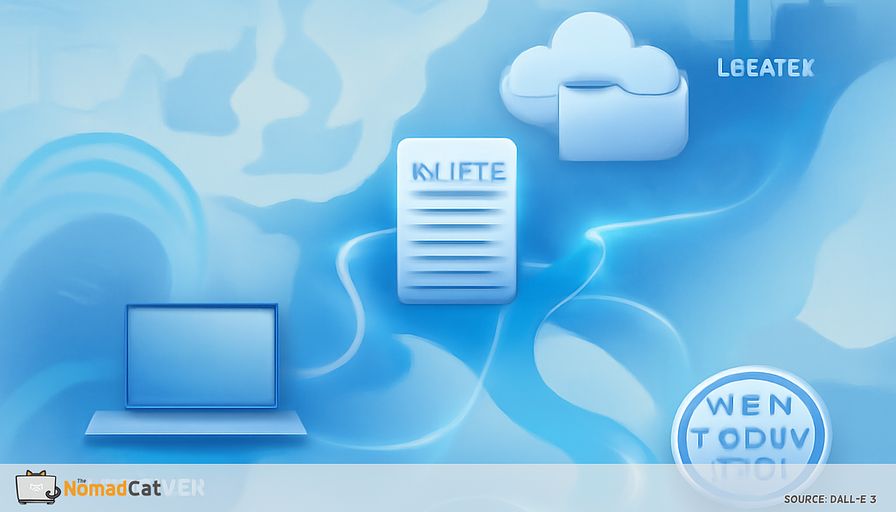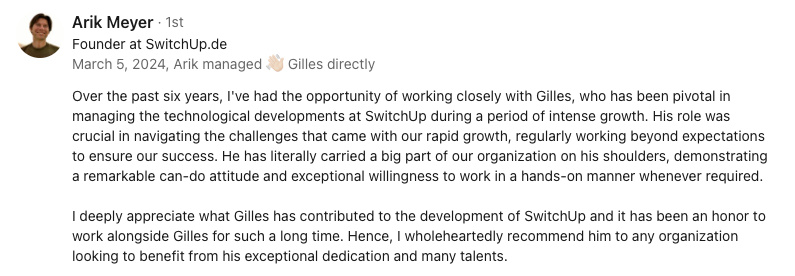Abstract:
The article explores the realities of being a tech freelancer who works and moves across different European countries, emphasizing that while the EU’s open borders offer genuine freedom to run a business from anywhere, managing taxes, social security, and pensions across borders is complex and requires careful planning. Drawing from personal experiences—such as relocating from Berlin to Lisbon and navigating local paperwork, or learning from stories like a German developer who avoided double taxation by relying on treaties—the article highlights practical challenges like proving self-employment, understanding tax residency beyond the simple 183-day rule, and ensuring seamless pension contributions using forms like the A1 and U1. It discusses the importance of digital platforms for finding work and managing compliance, the value of tools like KPMG’s Global Mobility Tracker, and the emergence of new solutions like the Pan-European Personal Pension Product (PEPP) for portable private pensions. The piece underscores the necessity of keeping meticulous records, leveraging expat communities for advice, and integrating tax and pension planning into business decisions from the outset, concluding that thorough preparation and smart habits are essential to truly enjoy the mobile, cross-border freelancing lifestyle in Europe.
If you’re a tech freelancer dreaming about working from a sunny café in Lisbon one month and a lively co-working space in Berlin the next, you’re not alone. The freedom to move and work across Europe is real, and the idea of running your business from anywhere in the EU can feel like a golden ticket. Yet borders hide small print. Taxes, social security, and pensions don’t always follow you automatically when you cross from one country to another.
Maybe you’ve already asked yourself: Where do I register for taxes if my clients are in three different countries? What papers keep me from paying social charges twice? How do I make sure my pension keeps growing if I never stay put? These are the headaches hidden behind the glossy travel photos. The good news: practical steps exist that let you enjoy the freedom without nasty surprises.
Moving and working across Europe as a tech freelancer
The practical freedom to move and work
EU law lets me set up shop in any member state. That right is not just legal theory. I can open my laptop in Berlin, Lisbon, or anywhere else and bill clients as usual. Still, every country has its own admin maze. The EU opens the door, local rules decide how wide.
Being treated like a local (well, almost)
On paper I should get the same treatment as residents: fair taxes, access to social benefits, and clear rules. Reality adds a layer of paperwork. When I left Berlin for Lisbon, I had to register locally and prove I was genuinely self-employed. Knowing those little quirks—like needing a Portuguese NIF and a local address before I could even open a bank account—saves time and nerves.
Proving your freelance work (and handling a few curveballs)
Offices sometimes double-check new arrivals to stop fake self-employment. Extra forms or odd exceptions pop up, especially in countries still fine-tuning EU rules. Having documents and proof of ongoing work close at hand keeps the process smooth.
Day-to-day reality of cross-border freelancing
Remote work as the new normal
Most tech freelancers serve clients abroad without moving house. I stayed put because duplicating social charges would have erased any tax perk. The silence of solo work hit hardest during my second winter in Berlin—tax forms felt easy compared with that.
Platforms and communities make borders fade
- Malt, Upwork, Toptal link freelancers with clients across Europe.
- Expat groups and forums share tips on tax, registration, and local habits.
Digital nomad visas and the three-month rule
Countries like Portugal and Estonia now offer digital nomad visas. Portugal’s D8 visa demands €2,820 monthly income, while Estonia’s Digital Nomad Visa requires proof of €4,500 gross monthly salary over six months. If you stay beyond about three months, expect to register locally. Knowing the timeline keeps things simple.
How cross-border taxes really work for moving freelancers
Where do you really owe taxes? Understanding tax residency
People quote the 183-day rule, but calendars rarely tell the whole story. Authorities also look at where your main home is, where family lives, and where your business feels rooted. Spend six months in Germany and six in Portugal and you may find both tax offices knocking. Double tax treaties sort these clashes by checking ties such as habitual residence or even nationality. They work only if your paperwork is tidy and deadlines met.
Tricks for avoiding double taxation and common traps
Double tax treaties stop you from paying twice by letting you claim credits for tax already paid abroad. Social charges add a second layer. The A1 certificate proves you owe contributions in just one country. I once forgot it and paid a €600 late-payment surcharge. Simple habits help: log travel days, scan certificates, set calendar pings, and keep a running checklist.
Pensions across borders
State pensions stay with you if you plan ahead
EU rules say I pay social security in one place at a time, and years worked in Berlin, Lisbon, or anywhere else get added together for my future state pension. Why risk a gap? Missing a year in one country can shrink retirement income across the board.
Keep the paperwork, skip the pension headaches
I always:
- Request a U1 form when finishing a contract.
- Keep digital folders with payslips and insurance letters.
- Update records in the country where I expect to retire.
Don’t let gaps creep in—track your history early
Missing records can shrink retirement income. Tools like Find Your Pension help track contributions before gaps appear.
Private pensions are harder to move around
State systems talk to each other; private plans don’t. Moving funds can mean fees or tax penalties.
The new hope: PEPP for portable pensionsThe Pan-European Personal Pension Product (PEPP) lets savings follow you from country to country in a single wrapper. PEPP launched in March 2022 with a €50,000 lifetime cap on tax-advantaged contributions in Portugal.
Keeping private pension plans under control- Keep every statement and contract in one place.
- Look for voluntary schemes recognised in several countries.
- Use online dashboards to track growth.
- Check rules before accepting new work or relocating.
Tools and habits for seamless compliance
I missed a Spanish Modelo 30 deadline once; since then, KPMG’s day-tracker has been my safety net.
Digital helpers for cross-border admin
Apps reduce guesswork:
- KPMG Global Mobility Tracker counts days and warns about residency risks.
- Deloitte myInsight keeps compliance dates clear.
- EY Mobility Pathway flags local quirks before they bite.
For filings and invoices, Xolo and TaxScouts handle multi-country needs. Shield GEO and Remote.com manage social contributions. Find Your Pension keeps retirement records aligned.
Building my compliance routine
Once a month I check days spent in each country, upcoming deadlines, and my compliance list. All key documents live in a secure cloud folder. Scanning papers as soon as I get them has saved me during audits and new moves.
Lessons from real-life freelancing across borders
Stories that show the real challenges
A German developer moved to Portugal for sunshine and soon faced claims from both tax offices. Only by leaning on the double tax treaty did she avoid paying twice. Early research and a quick chat with a cross-border advisor would have spared weeks of stress.
Solving social security with the right documents
A Spanish product manager split time between Spain and the Netherlands. An A1 certificate from his home system proved he owed social charges in one place only, saving him money and future pension trouble.
What these stories really teach
- Start tax and pension planning before you move.
- Keep every official document.
- Use EU tools like double tax treaties and social security rules.
Straightforward tips for the mobile freelancer
When expert advice is worth it
If you earn in more than one country, plan a relocation, or juggle complex assets, bring in a cross-border tax advisor. It costs less than fixing mistakes later.
Don’t go it alone—communities help
Groups on Internations and Expatica share firsthand advice on offices, forms, and timing. Peer input often fills gaps official sites ignore.
Planning from day one makes a difference
Data-driven planning sits in my earliest business decisions. After the Berlin-Lisbon move caught me off guard, I built tax and pension strategy into project scoping. Up-front work buys freedom later.
Switching from Berlin to Lisbon took 3 months of paperwork; the checklists above cut my next move to 10 days.














